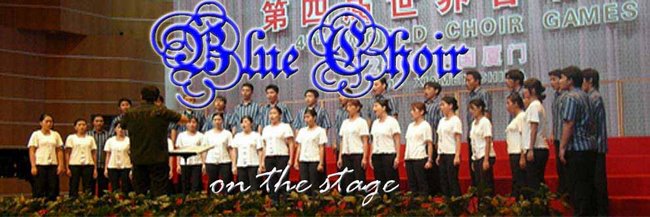How To Save Your Voice
By Craig Tompkins
1. Avoid abusing your voice.
* You should do nothing to your voice that results in hoarseness and/or throat pain.
* Avoid yelling or screaming to the point of causing hoarseness.
* Avoid singing so loudly that you develop hoarseness, and avoid singing in situations that are so noisy that you cannot hear yourself singing.
* When you have a cold or laryngitis, do not try to talk or sing "over" the problem, since this can lead to vocal‑fold damage. See your doctor.
2. Avoid misusing your voice.
* Be careful when using "character voices" not to strain, and use especially good breath support.
* Do not attempt to alter your "normal" speaking voice to create an effect; particularly avoid pitching your voice too low. (If you are using the lowest note of your pitch range for everyday conversation, this is too low).
* Avoid taking on roles that you cannot do, that is, don't attempt roles that are out of your range.
* Avoid using long run‑on sentences and a rapid speaking rate that stresses the vocal apparatus; good breath support for conversational speech is every bit as important as good breath support for singing. (If you don't know what this means, you should consider taking voice lessons, and/or seeing a voice therapist).
3. Avoid overusing your voice.
* In very noisy environments such as airplanes, keep conversation to a minimum.
* Examine your "vocal schedule" carefully. Remember that all your vocal demands are not of equal importance. Avoid making a schedule that leaves no room for rest and recovery.
* Use amplification when available and appropriate, especially for rehearsals.
* Use "marking" techniques when appropriate, especially for rehearsals.
4. Monitor your work and home environments for possible problems.
* Avoid, if possible, performing in smoky, dusty, and noisy environments.
* Use humidification in your bedroom, especially during the winter.
5. Monitor your diet and life style.
* Eat regularly, and eat a healthy diet.
* Avoid fried and other fatty foods.
* Avoid dehydration, since this adversely affects the vocal folds; drink plenty of water.
* Avoid eating or drinking, particularly alcoholic beverages, within three hours of bedtime.
* Minimize consumption of caffeine‑containing foods and beverages.
* Strictly avoid smoking or other tobacco consumption; if you already smoke, quit.
* Exercise regularly; mild aerobic exercise is best.
6. Avoid unnecessary medications.
* Don't treat yourself.
* Avoid drying medications such as antihistamines.
* Avoid anesthetic throat sprays.
* Know the possible effects your medications may have on your voice. Visit http://www.ncvs.org/ncvs/info/lifelong/rx2.html for a list of over 200 commonly prescribed medications.
7. Consider taking voice lessons, even if you have never had a voice problem; voice lessons have been shown to increase vocal efficiency, and decrease the likelihood of developing voice problems.
8. If you need a physician, consult with other singers to find an otolaryngologist who has experience in treating vocalists.

